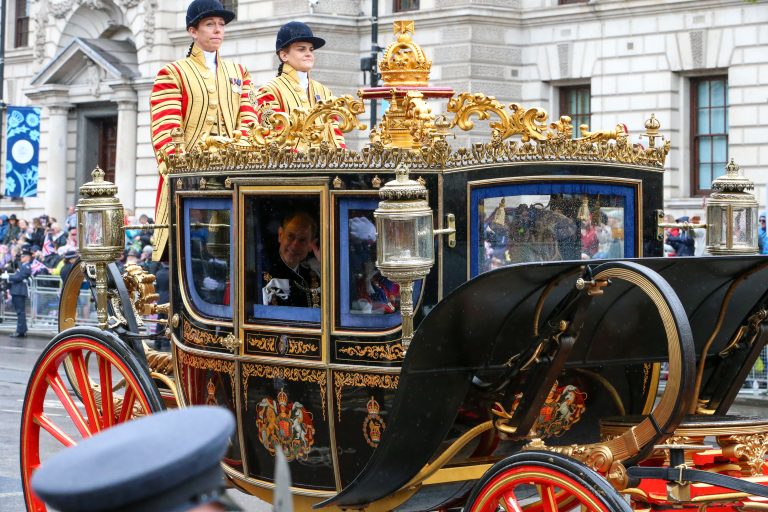
In a country where folklore once whispered of leprechauns and gold at the end of the rainbow, a new kind of treasure emerged in the 21st century—Bitcoin. Born in the aftermath of a global financial crisis, this revolutionary digital currency found its way into Ireland’s hands, minds, and headlines, slowly but steadily reshaping how we think about value, finance, and even freedom.
The history of Bitcoin in Ireland is a compelling tale—a fusion of skepticism and curiosity, regulation and rebellion, innovation and investment. From the early adopters mining Bitcoin in their attics to the tech-savvy youth trading crypto on mobile apps, Ireland’s journey with Bitcoin is deeply intertwined with its post-recession economic recovery and its rising reputation as a European tech hub.
In this in-depth exploration, we’ll chart the timeline of Bitcoin in Ireland, explore regulatory shifts, address frequently asked questions, and offer insights into what the future might hold for cryptocurrencies on this island of digital potential.
What is the true history of Bitcoin?
Bitcoin was created in 2009 by a mysterious figure (or group) under the pseudonym Satoshi Nakamoto, as a response to global banking failures. The vision? A decentralized digital currency that didn’t rely on banks, governments, or borders—a peer-to-peer electronic cash system backed by blockchain technology.
In Ireland, interest in Bitcoin was initially limited to cyberpunks, computer science students, and tech entrepreneurs. But as the currency’s price skyrocketed from a few cents to tens of thousands of euros, the Irish public and media began to pay attention.
By the mid-2010s, Bitcoin meetups in Dublin and Cork became more common, small businesses experimented with accepting crypto payments, and early investors quietly watched their €50 bets grow into digital fortunes.
What if I bought $1 of Bitcoin 10 years ago?
If you had bought just $1 worth of Bitcoin in 2015, when BTC was priced around $250 per coin, you’d have owned roughly 0.004 BTC. As of early 2025, with Bitcoin hovering between €50,000–€60,000 per coin, that humble $1 could now be worth over €200–€250, depending on market fluctuation.
Some Irish investors who started small in the early 2010s have become crypto millionaires, while others regret selling too soon. The lesson? In the volatile world of crypto, timing and patience are everything.
Is Bitcoin legal in Ireland?
Yes, Bitcoin and other cryptocurrencies are legal in Ireland. However, they are not classified as legal tender, meaning they are not recognized as official currency like the euro. The Central Bank of Ireland has repeatedly cautioned consumers about the risks of crypto investments but has not banned them.
Crypto is regulated under existing EU financial laws, and with the arrival of MiCA (Markets in Crypto Assets Regulation), Ireland will see even clearer frameworks for exchanges, wallets, and crypto service providers.
Related keyword: Is cryptocurrency legal in Ireland — Yes, but it’s regulated, not banned.
How many people in Ireland own Bitcoin?
Recent studies suggest that approximately 10-12% of Irish adults have either invested in or traded cryptocurrency, with Bitcoin being the most popular choice. That’s close to 400,000 people—a remarkable figure for a country of just over 5 million.
Interest is especially high among people aged 18–35, many of whom view Bitcoin not only as an investment, but as a hedge against inflation and a symbol of financial independence.
How to Buy Bitcoin in Ireland
Buying Bitcoin in Ireland has never been easier. Here are the most common ways:
-
Crypto Exchanges in Ireland:
Popular platforms include Coinbase, Binance, Kraken, and Bitstamp. -
Ireland Crypto Exchange Options:
Some Irish fintech startups offer local exchange services or act as brokers for larger platforms. -
Revolut:
A popular option among young Irish users. You can buy Bitcoin via the Revolut app, although you may have limited custody and more complex tax considerations. -
Bitcoin ATMs:
A small number of Bitcoin ATMs exist in Dublin and Galway, although regulatory issues have limited their spread.
Crypto Tax in Ireland: What You Need to Know
How to avoid crypto tax Ireland?
Short answer: you can’t—not legally. But you can minimize your tax liability with planning.
In Ireland, profits from crypto trading are subject to Capital Gains Tax (CGT) at 33%. There’s a €1,270 annual exemption, but beyond that, gains must be reported. If you’re trading crypto as a business or full-time activity, Income Tax may apply instead—up to 52% when including USC and PRSI.
Related keyword: Crypto tax calculator Ireland – Several online tools now exist to help Irish investors calculate their crypto gains for tax returns.
Revolut crypto tax Ireland:
Revolut users are also liable for CGT, even though the app handles crypto in a custodial way. You must track transactions manually or via API export.
History of Bitcoin in Ireland: Key Moments
- 2010–2013: Early adopters and Bitcoin miners experiment quietly in Irish tech circles.
- 2014: Bitcoin first hits the mainstream press in Ireland. First Bitcoin ATMs appear in Dublin.
- 2015–2017: Surge in interest as prices rise. Bitcoin Meetups grow in Dublin and Cork.
- 2018: Government issues more formal tax guidance. Exchanges grow but face regulatory scrutiny.
- 2020–2022: Huge pandemic-era price rallies drive retail interest. Revolut and eToro usage explodes.
- 2023–2024: Focus shifts from hype to regulation. Crypto education rises in universities and financial institutions.
- 2025: Ireland braces for full MiCA implementation, paving the way for clearer institutional adoption.
History of Bitcoin in Ireland Wikipedia and PDF Resources
Looking for a downloadable PDF guide or history timeline?
Stay tuned — we’re preparing an in-depth “History of Bitcoin in Ireland PDF”, including key legal changes, tax evolution, exchange growth, and user behavior statistics.
👉 [Coming soon on SecretIreland.ie | History of Bitcoin in Ireland Wikipedia-style Timeline & PDF]
What’s Next for Bitcoin in Ireland?
As Ireland strengthens its fintech credentials, we may see:
- Crypto ETFs and index funds
- Blockchain-based government systems
- Wider merchant adoption
- Educational programs in universities
- Decentralized Finance (DeFi) innovation clusters
Bitcoin is evolving from a fringe investment into a mainstream digital asset class, and Ireland is poised to play a role in shaping its European trajectory.




